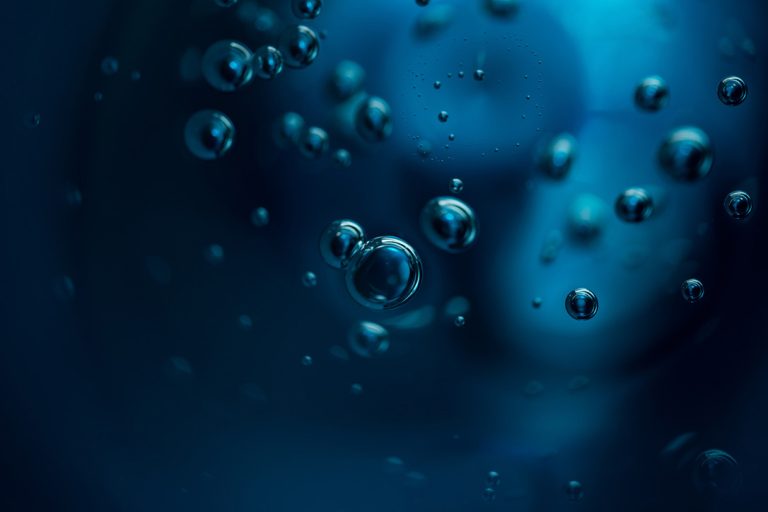Quadrise plc (LON:QED) Chief Executive Officer Jason Miles caught up with DirectorsTalk for an exclusive interview to discuss the Valkor project, progress in Morocco with OCP, the agreement with MSC & Cargill, the bioMSAR development program, and what investors should be looking out for in the coming months.
Q1: Quadrise recently provided their update on the Utah project with Valkor. It looks like good news, but could you just explain for us a little bit more about that?
A1: We’re obviously delighted for Steven Byle and the Valkor team, they have been slaving away in Utah just during the last few months. As shareholders may recall early this year, Valkor received permission to commence pilot drilling on their leases so that they could demonstrate to the Utah Division of Oil, Gas and Mines and the landowners, Sittler, three main points really.
That is that the subsurface oil is heavy, which is classified as over 10,000 centipoise. Centipoise is a measure of viscosity so to give you an idea, diesel is less than 10 centipoise, heavy fuel oil ranges from up to 500 centipoise so 10,000 centipoise is extremely viscous.
It’s really like a bitumen at the reservoir temperatures so they also had to establish that there’s a common pool of heavy oil underground that supports the commercial recovery.
Thirdly, that they needed to really cover was that the agency action was required by the Division and the State Board in Utah to really change the standard well spacing from 40 acres, which is how it’s legislated today, to between 1 to 2.5 acres to ensure that the heavy oil project for Valkor and their partners is economically viable.
Q2: So, I’m assuming that the pilot drilling program in Utah has been successful so far?
A2: Yes, it has, for the following reasons really. The subsurface oil, first of all, is classified, they basically did two pilot wells. They established an oil viscosity that ranged from anything from 600,000 up to 1 million centipoise, which is really extra heavy natural bitumen. A bit like ore emulsion was actually funny enough in terms of its viscosity. So, that natural bitumen is very viscous.
The other thing that they established was that they basically have good deposits of bitumen-saturated sandstone, and the seams are very thick. The tests that they did, ranged between anything from 75 feet up to 180 feet of depth, which is great, and that also established that it was a common pool as well of this type of material in a seam, several seams.
So, as a result, the economics of the project are very robust, as long as close to well spacing is, of course, allowed. There was a recent decision by the Utah State Board provided for that on Wednesday.
As with any new development, they’ve had a few challenges to overcome, which has taken them a little bit longer to get up and running. But that experience they’ve recently gained has been very useful for the future wells.
Q3: What’s next then?
A3: So, Valkor are now heating the wells using electrical elements that they’ve installed down the well site to increase the subsurface oil temperature to around 100 degrees centigrade. The reservoir temperature is around 20C or so, they’re increasing it up to 100C so that the oil flows and that means they can then extract it, so they can start getting oil to the surface.
Once over 100 barrels of oil are extracted and sold, then basically Valkor’s financing partners will then release another round of funding to the tune of, I think, about $14 million. That basically gives them some more further funds to start developing the site and to drill further wells to start generating cash flow and apply for the project finance tranche then.
From our perspective as Quadrise, the establishment of the oil flowing provides us with samples to test in QRF, first of all, both of the extracted heavy sweet oil, which is ultra heavy, ultra-low in sulphur, but also of a heavier cut of bitumen as they’re planning to install a fuel upgrading system to recover some of the diesel out of the heavy oil, which makes the bitumen even more viscous, which is great for us.
We’ll then start marketing the oil during the following months, once we’ve had the samples tested, then to US clients, most likely initially for diesel engine applications.
The final point for us, which is certainly the most important, is that once their project finance is raised of over $15 million, that really triggers our site license agreement that we have with Valkor to start, for which we get paid $1 million up front. We get a further $500,000 once we deliver equipment to site and then we also get $75,000 a quarter for support services.
So, we also have a profit share arrangement for MSAR and bioMSAR sales in the US so obviously, we’re very keen to assist them with the marketing program next.
Q4: That must be an extremely important milestone for the company?
A4: Yes, it is. These sales incomes are extremely important for us, but it’s also our first technology license, frankly, and this really establishes a baseline value for the IP and the know-how that we’ve developed over the years.
Also important, equally, is the access to advantaged ultra-low sulphur, low carbon. Basically, the fuel itself has a lower carbon intensity as well, because it’s not going through a refinery process and that means that this could be a game changer for a range of energy applications, not least to decarbonise the existing marine fleet.
Q5: Moving on to your other key projects, how are things progressing there?
A5: In Morocco, the Quadrise engineering team are fully engaged with OCP to deliver this month on trial at the Jorf Lasfar site this quarter so there’s a flurry of activity preparing for this, including bringing all the equipment in and the additives, etc, and getting everything through customs, which in the past has taken a little bit of time. So, at the moment, we’re very, very busy and making sure that everything gets through smoothly.
On the other side of the coin is basically the commercial supply discussions, which have begun already with potential MSAR suppliers in the Mediterranean as well.
With MSC, we’re getting closer to finalising the three-way agreement that we have, which also includes Cargill. This has taken a little bit longer than anticipated, we are getting to the final points so looking forward to progressing that and providing an update.
In Southeast Asia, we’re also looking to conclude an agreement for testing MSAR at a refinery there, the trial itself will be a precursor to then continue use of the fuel in the system in the refinery.
In parallel, there’s quite a bit of business development work ongoing with a number of other shipping companies, and potential refinery suppliers as well, ready to complement the commercial supply to MSC and OCP in the future from marine hubs.
I shouldn’t forget that the bioMSAR development program continues extremely positively. That also involves partners such as Vertoro and BTG Bioliquids, who are involved in this as well and we’re planning some further engine testing at Aquafuel on some exciting new formulations, incorporating some of these products, and looking forward to publishing that data in the near future as well.
Q6: Sounds like a busy period for Quadrise. With that in mind, what should investors be looking out for next?
A6: It’s going to be still a busy summer and aside from the Valkor project activities that obviously, that we will keep shareholders up to date with, and the ongoing bioMSAR work over the summer, our main focus is frankly on concluding the Morocco trial successfully, safely, and making sure that the MSC agreements and the Southeast Asia project agreements are signed expeditiously as well.
So, that’s really our main focus is delivery and making sure these things get done in the second half of the year.






































